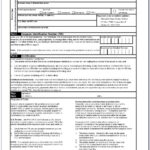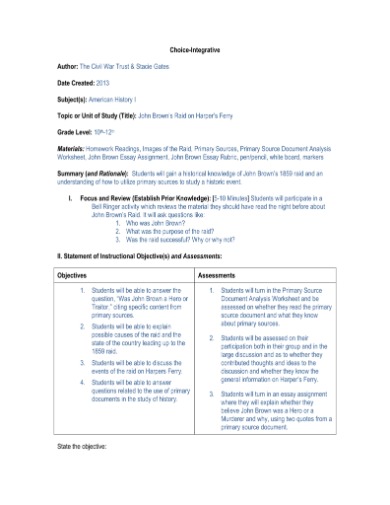If a partnership or corporation incurs $55,000 or more in organization costs, it may not deduct any of them immediately. The entity amortizes all organization costs over 180 months beginning in the month it begins business (Secs. 248(a) and 709(b)(1)(B)). If a taxpayer acquires a business, Sec. 195(c)(2)(B) deems the acquired business to have begun on its acquisition date. Example 3 shows the tax treatment of startup costs for a sole proprietor who incurred less than $50,000 of startup costs. Whether you are forming your first company or expanding into a new area, it is important to properly account for start-up and organizational costs.

One difference is that while a taxpayer may deduct up to $5,000 of startup costs, a taxpayer may not deduct any cost for goodwill or other intangible assets listed in Sec. 197 except through amortization. A taxpayer amortizes the startup costs not eligible for an immediate deduction over 180 months. Likewise, a taxpayer amortizes goodwill and other intangibles listed in Sec. 197 over 15 years (Sec. 197(a)).
Start-up costs and organizational expenses are deducted over 180 months
If you do not expect to make a profit in the first year you are in business, you should consider amortizing the full amount of start-up and organizational costs over 15 years. For example, if your start-up costs are $30,000, you could deduct $2,000 per year for 15 years instead of taking the $5,000 deduction in year one. Fortunately, the losses from a money-losing activity—either from an existing business or a start-up—can be used to offset the income from other sources. However, for a hobby that is not aimed at generating profit, the expenses are generally deductible only to the extent of the activity’s income.

Since the IRS separates startup costs and organizational costs, you can also take a deduction up to $5,000 for organizational expenses (up to $50,000). These costs must be incurred before the end of the first tax year your company is in business. The same IRS rules apply to organizational expenses between $50,000 and $55,000, as well as over $55,000. The remaining $18,000 must be amortized over Deducting Startup And Expansion Costs the 180-month period, which is a monthly amount of $100. 99-23, the IRS set forth three scenarios in which a taxpayer acquired a business unrelated to its existing business. In all three cases, the IRS concluded that general due-diligence and investigatory expenses incurred to decide whether to enter a new business, and which new business to enter, can be deducted/amortized under Sec. 195.
How does amortizing start-up and organizational expenses work?
The operation is profitable, and she decides to establish a business at the same location that specializes in vintage decor rental. Jane Doe’s start-up expenses amount to $70,000 and include the cost of hiring employees, setting up bookkeeping, creating an operations manual and advertising and promoting. Examples of nondeductible expenditures include https://kelleysbookkeeping.com/how-to-create-a-small-business-budget/ costs of issuing shares of stock, such as commissions, professional fees, and printing costs. If your corporation is a success and you want to pass it on to future generations, you’ll want to make sure to take advantage of this election. If you don’t, as a practical matter, your corporation may never get to deduct its corporate organizational costs.
- Start-up costs include amounts paid or incurred in connection with an existing activity engaged in for profit, and to produce income in anticipation of the activity becoming an active trade or business.
- You can also write off costs for forming a corporation, partnership, or limited liability company (LLC), including registering your business with a state, creating a partnership agreement or shareholders agreement.
- Likewise, a taxpayer amortizes goodwill and other intangibles listed in Sec. 197 over 15 years (Sec. 197(a)).
- If your total startup costs are more than $50,000 or your organizational costs are more than $50,000, you must reduce the special deductions.
- When starting a business, owners should treat all eligible costs incurred before beginning to operate the business as capital expenditures that are part of their basis in the business.
The election to deduct is included on your business tax return as part of “Other Income.” Startup costs are included in the value of your business as capital costs, and they must be deducted over 15 years using a process called amortization. The costs are for starting up the business and for costs of organizing for corporations, partnerships, and limited liability companies. Business startup expenses can be costly, but the good news is that you can use most of these costs to reduce your business taxes. The $5,000 deducted for organizational expenses must be reduced by the amount by which the expenses exceed $50,000.
Tax laws can help or hurt new and expanding businesses.
Typically, it depends on the type of cost and the amount invested, but there are other IRS regulations that may apply. The so-called organizational costs of business entities are a separate class of expense from start-up expenses, although subject to similar rules. An incorporated business can, for instance, choose to deduct up to $5,000 of any organizational expenses incurred in the tax year business begins. In most cases, the ordinary and necessary expenses of carrying on a trade or business are tax deductible.
- In the first year you are in business, you can deduct Up to $5,000 in start-up costs provided you’ve spent $50,000 or less This deduction must be made in the first year you are actively in business.
- Deductible investigatory expenses include costs incurred for the analysis or survey of potential markets, products, labor supply, and transportation facilities.
- A corporation can deduct up to $5,000 of business startup costs under Sec. 195.
- If the startup costs are $55,000 or more, the taxpayer cannot deduct any of the startup costs except as an amortization deduction.
- Costs that are startup costs for financial accounting purposes must be analyzed and possibly subdivided into smaller categories, each of which is treated differently for tax purposes.
